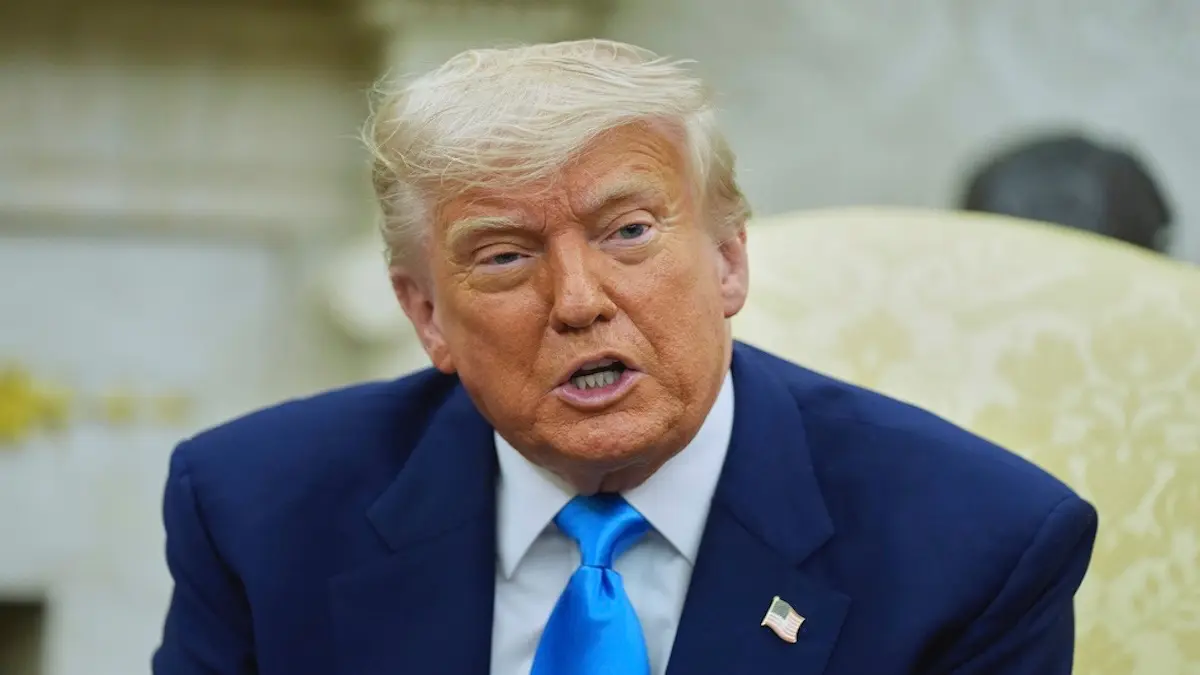Updated 26 May 2025 at 12:51 IST
'Not Looking To Make Socks': US President Donald Trump Defends Tariffs Aimed At High-Tech, Not Apparel
US President Donald Trump has clarified that his tariff strategy targets the revival of US manufacturing in sectors like defense and high-tech, not clothing and footwear.
- Republic Business
- 3 min read

US President Donald Trump reiterated his commitment to reviving domestic manufacturing in strategic sectors such as defence and advanced technology, distancing his administration from the clothing and footwear industries.
Speaking to reporters in New Jersey before boarding Air Force One on Sunday, Trump said his goal was not to bring back mass production of apparel but to build tanks, ships, and high-end technology.
"We're not looking to make sneakers and T-shirts. We want to make military equipment. We want to make big things. We want to make, do the AI thing," said Trump, aligning himself with recent remarks made by Treasury Secretary Scott Bessent.
On April 29, Bessent said the U.S. does not necessarily need a “booming textile industry,” a comment that drew sharp criticism from the National Council of Textile Organisations (NCTO).
"I'm not looking to make T-shirts, to be honest. I'm not looking to make socks. We can do that very well in other locations," Trump added. “We are looking to do chips and computers and lots of other things, and tanks and ships."
Read More
Belrise Industries IPO Allotment Status: How To Check Online - Links
Industry Response: Tariffs Hurt, Not Help
In response, the American Apparel & Footwear Association (AAPA) criticised Trump's tariff approach, arguing that it harms American consumers and manufacturers alike. Steve Lamar, President of the AAPA, warned of increased costs and negative impacts on working-class Americans.
"With 97% of the clothes and shoes we wear being imported, and with clothes and shoes already the most highly tariffed industry in the US, we need to focus on common-sense solutions that can move the needle," Lamar said in a statement.
"More tariffs will only mean higher input costs for US manufacturers and higher prices that will hurt lower-income consumers."
EU Tariff Threat Paused—for Now
Trump, known for disrupting global trade with sweeping tariffs, reignited tensions on Friday by threatening a 50% levy on goods from the European Union starting June 1. He also warned tech giant Apple of a potential 25% tariff on all imported iPhones sold in the U.S. market.
However, in a partial reversal, Trump extended the EU tariff deadline to July 9, citing the need for further negotiations with the 27-nation bloc.
Manufacturing and the Working Class Vote
Trump, who won both the 2016 and 2024 US presidential elections by appealing to the working class, continues to frame his trade policies as a way to reclaim American manufacturing jobs. While the U.S. remains deeply reliant on global supply chains, Trump has used tariffs as a tool to encourage reshoring and foreign direct investment in high-value sectors.
As debate intensifies between protectionist trade policies and global competitiveness, Trump’s latest remarks make it clear where his administration stands: on the side of tanks and tech—not T-shirts.
(With Inputs From Reuters)
Advertisement
Published By : Gunjan Rajput
Published On: 26 May 2025 at 11:46 IST
